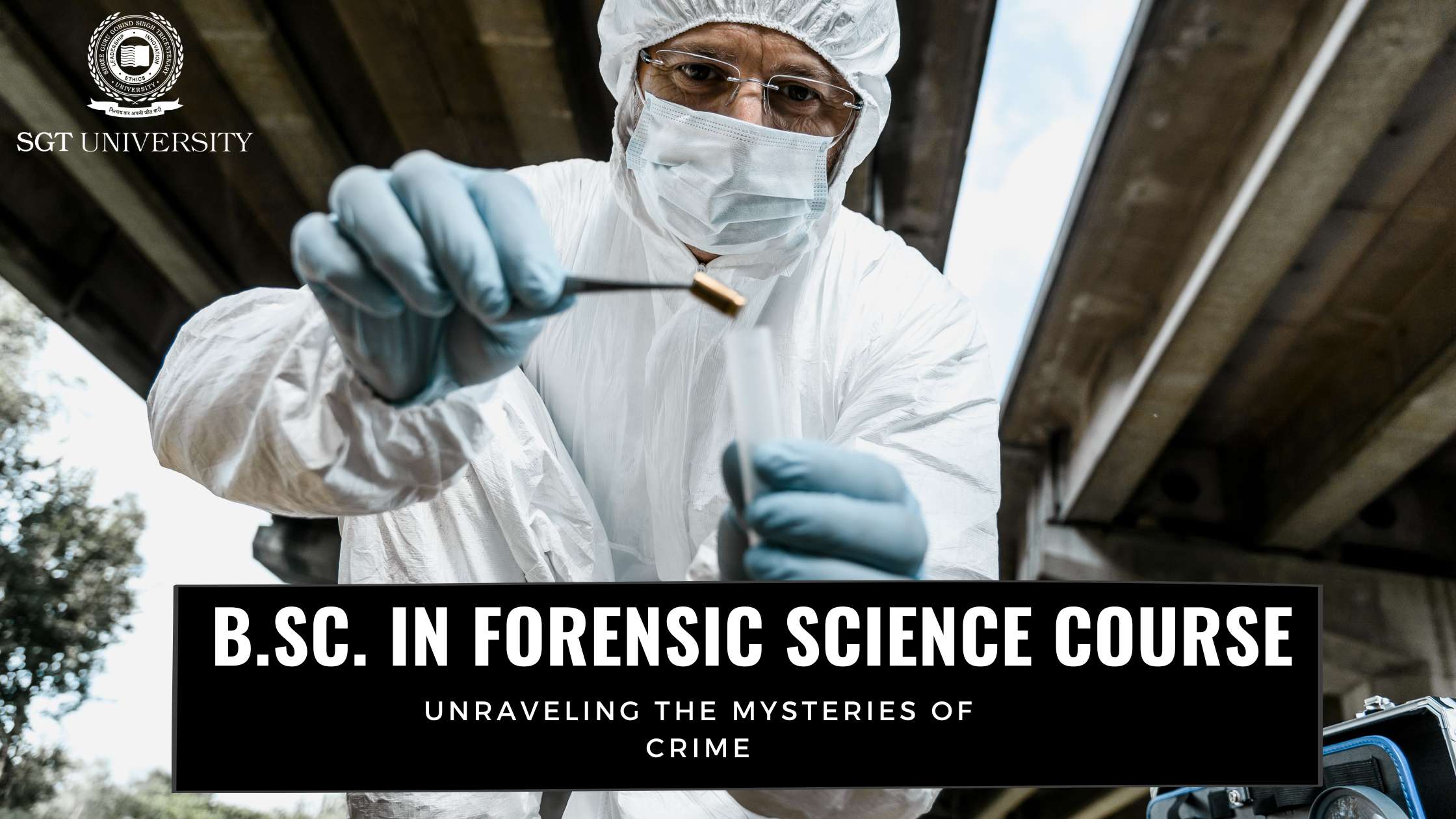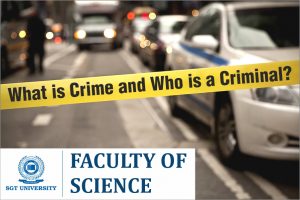Are you intrigued by the world of crime investigation and analysis? Do you have a keen eye for detail and a passion for science? If so, pursuing a Bachelor of Science (BSc) degree in Forensic Science or a BSc Forensic Science Course might be the perfect choice for you.
This exciting field combines scientific principles with investigative techniques to uncover evidence and solve crimes. In this comprehensive guide, we will delve into the world of BSc Forensic Science, exploring its importance, curriculum, career opportunities, required skills, and much more.
Introduction
Forensic Science has emerged as a vital discipline in modern crime-solving. It involves the application of scientific knowledge and techniques to gather and analyze evidence that can be presented in a court of law. BSc Forensic Science programs equip students with the necessary skills and expertise to contribute to criminal investigations, forensic laboratories, and other related fields.
What is BSc Forensic Science?
BSc Hons in Forensic Science is an undergraduate degree program designed to provide students with a comprehensive understanding of the scientific techniques and principles used in crime scene investigation and analysis. This multidisciplinary course encompasses various disciplines such as biology, chemistry, physics, genetics, psychology, and criminal law. Students learn how to collect, preserve, analyze, and interpret evidence found at crime scenes to assist in solving criminal cases.
The Importance of BSc Forensic Science
Forensic Science plays an important role in the criminal justice system. It helps link suspects to crime scenes, identify victims, and provide evidence for legal proceedings. BSc Forensic Science graduates possess the expertise to analyze fingerprints, DNA, fibers, ballistics, and other forms of physical evidence. Their work aids law enforcement agencies in identifying perpetrators, proving guilt or innocence, and ensuring justice is served.
Curriculum and Course Structure
The curriculum of BSc Forensic Science programs varies among universities, but they generally cover a range of core subjects and offer specialization options.
Core Subjects
- Introduction to Forensic Science
- Crime Scene Investigation
- Forensic Biology
- Forensic Chemistry
- Forensic Physics
- Forensic Toxicology
- Forensic Pathology
- Criminalistics
- Evidence Collection and Preservation
- Forensic Anthropology
Specialization Options
Students often have the opportunity to specialize in specific areas within Forensic Science. Some popular specializations include:
- Forensic Psychology
- Digital Forensics
- Forensic Odontology
- Forensic Genetics
- Forensic Entomology
- Forensic Ballistics
Know more about BSc Hons Forensic Science Syllabus at SGT University. Keep in mind the syllabus at SGT University may be revised to keep in mind the latest updates in this field.
Career Opportunities in BSc Forensic Science
A BSc Forensic Science degree opens up a wide array of career paths. Here are some of the exciting job opportunities available to graduates:
- Crime Scene Investigation
Crime Scene Investigators collect and analyze physical evidence at crime scenes. They meticulously document, photograph, and collect samples for further analysis.
- Forensic Lab Technician
Forensic Lab Technicians analyze evidence collected from crime scenes using various scientific techniques and equipment. They may specialize in DNA analysis, ballistics, or drug analysis.
- Forensic Toxicologist
Forensic Toxicologists examine bodily fluids and tissues to identify drugs, alcohol, or other toxins that may have contributed to a crime or death.
- Digital Forensic Analyst
Digital Forensic Analysts recover and analyze electronic evidence from computers, smartphones, and other digital devices to assist in cybercrime investigations.
- Forensic Odontologist
Forensic Odontologists use dental records and bite mark analysis to identify human remains or match bite marks to suspects.
- Forensic Psychologist
Forensic Psychologists evaluate individuals involved in criminal cases to assess their mental state, competency, and potential for future dangerous behavior.
Skills Required for BSc Forensic Science
To succeed in BSc Forensic Science and related careers, certain skills are crucial. These include:
- Attention to detail
- Critical thinking and problem-solving
- Strong analytical skills
- Excellent communication skills
- Ability to work well under pressure
- Proficiency in scientific techniques and equipment
- Ethical and professional conduct
Job Market and Salary Potential
The job market for BSc Forensic Science graduates is expanding rapidly. The top job profiles and average salaries in this field are Forensic Specialists (INR 14.8 LPA), Forensics Managers (INR 8.5 LPA), Forensic Science Professors (INR 8.42 LPA), and Forensic Scientists (INR 3.5 LPA) (Source: Glassdoor). Forensic Science graduates have job prospects in both public and private sectors including universities, hospitals, defense forces, police forces, CBI, and private investigation agencies.
Top University Offering BSc Forensic Science
SGT University is widely recognized as the best forensic science college in Gurugram and Haryana. With a comprehensive three-year BSc program in Forensic Science, SGT University provides students with exceptional educational opportunities, cutting-edge facilities, and experienced faculty.
The university is diamond ranked according to QS-I Gauge global university rankings.
How to Apply for BSc Forensic Science Programs?
The admission to BSc Forensic Science Course at SGT University opens for 2023. Contact us through this link & know more: https://admissions.sgtuniversity.ac.in/sgtu/
Conclusion
BSc Forensic Science offers a captivating blend of scientific exploration and crime-solving intrigue. Aspiring forensic scientists can embark on a rewarding career journey, contributing to the pursuit of justice and the unraveling of mysteries. With a diverse range of specializations and a growing job market, a BSc Forensic Science degree holds tremendous potential for those fascinated by the world of crime investigation.
FAQs
Q1: Is BSc Forensic Science only for students interested in becoming crime scene investigators?**
A: No, BSc Forensic Science Course opens up a range of career opportunities, including forensic lab technicians, digital forensic analysts, forensic psychologists, and more.
Q2: Are there any prerequisites for applying to BSc Forensic Science programs?
A: At SGT University, admission to BSc Forensic Science program requires a minimum 60% marks in 10+2 with Physics, Chemistry, and Biology/Mathematics.
Q3: Can I pursue higher studies after completing a BSc Forensic Science degree?**
A: Yes, many students choose to pursue master’s or doctoral degrees in specialized areas of forensic science to further enhance their expertise.
Q5: How long does it take to complete a BSc Forensic Science degree?
A: Typically, a BSc Forensic Science program takes three to four years to complete, depending on the university and country of study.



